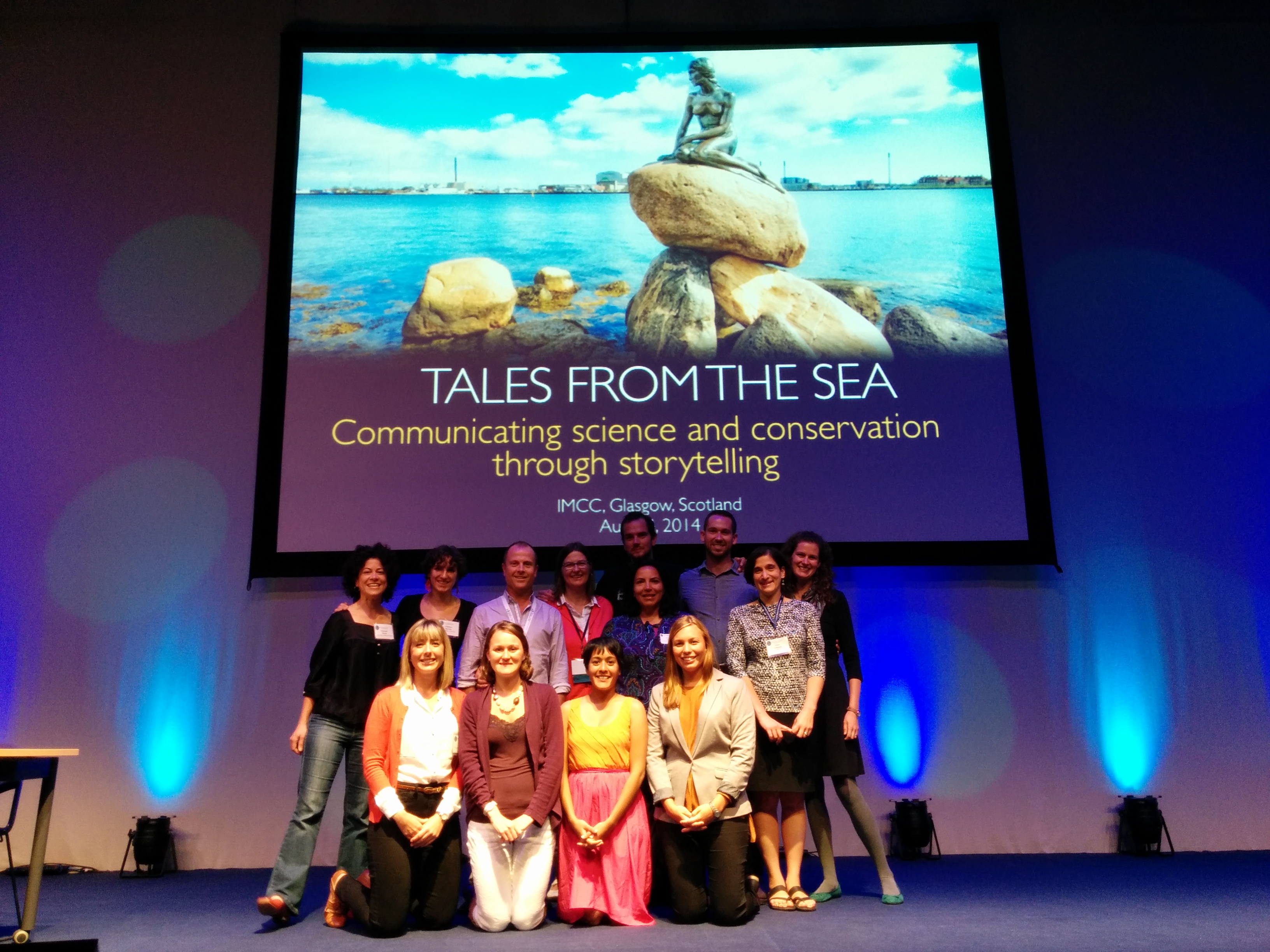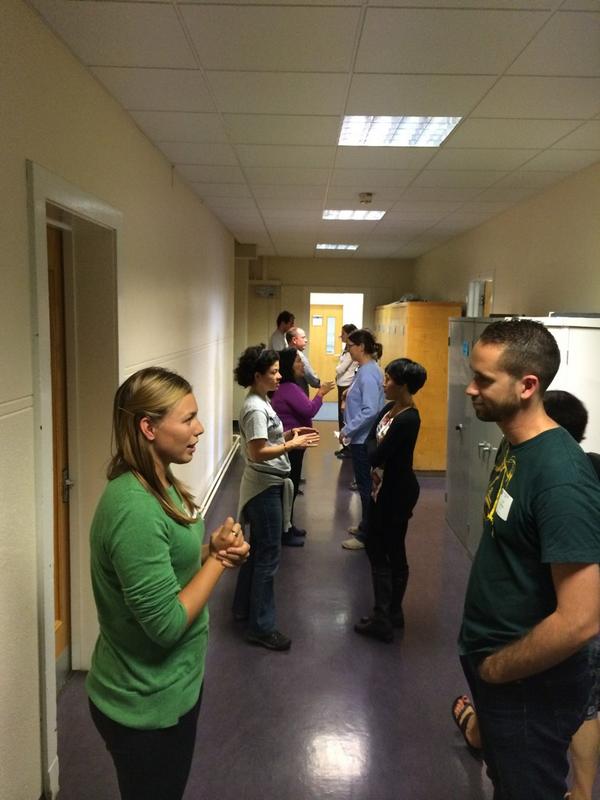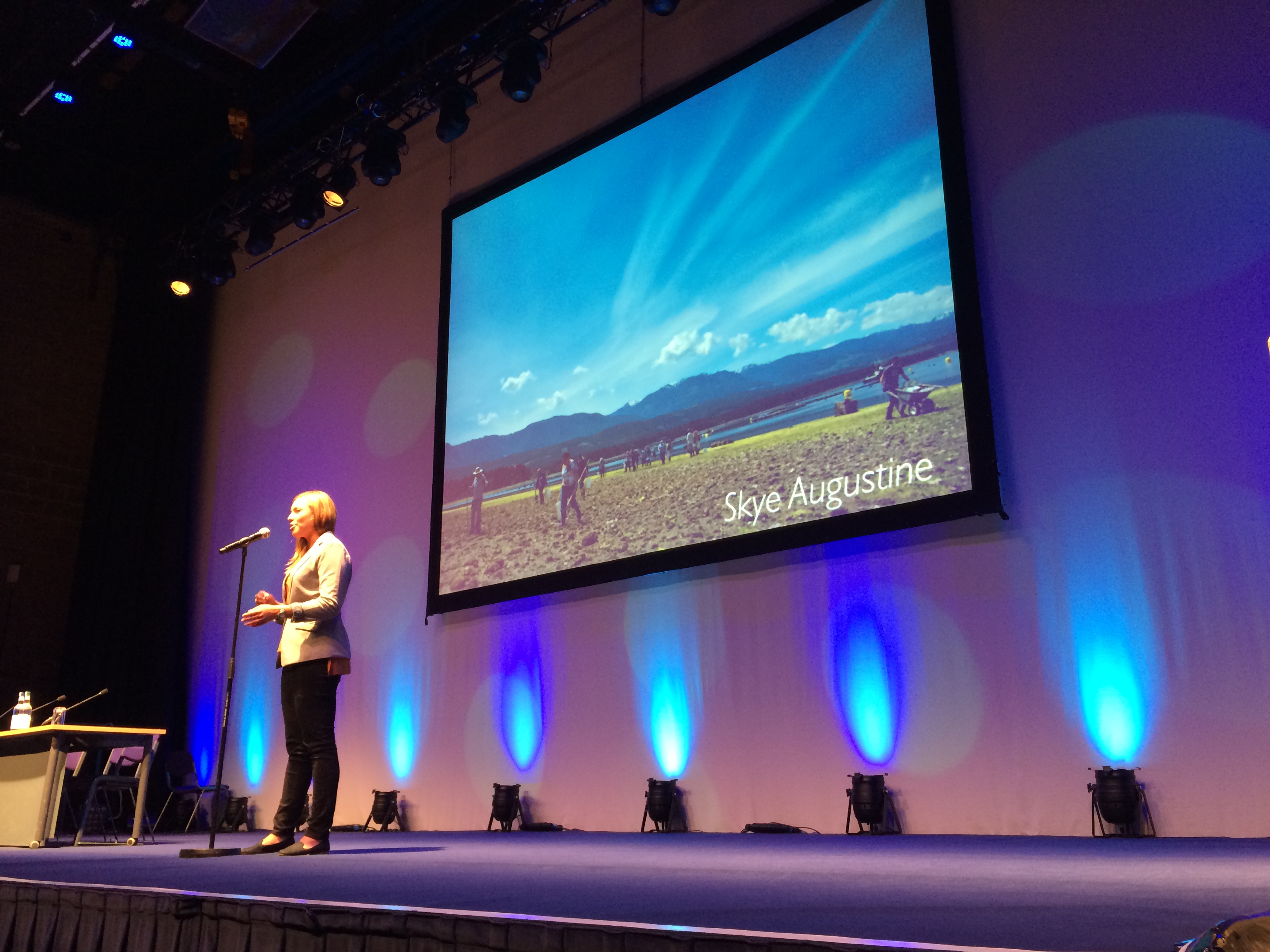|
|
The work of conservation scientists tells us how our world is changing, and what we can do to alter our trajectories toward ones that sustains all species—including our own. But while their insights are relevant to all, typically only scientists have access to academic journals and conferences where discoveries are shared. To help open the information gates, scientists and communication specialists from the Society for Conservation Biology, Oregon State University, and COMPASS banded together with a common purpose: empower scientists to hone and use the skill of storytelling.
Stories are universal for sharing knowledge across cultures, but for many it has become a lost art. So the three partner organizations came together to conduct an experiment to help scientists unite stories and science. They developed and led a workshop at the 3rd International Marine Conservation Congress (IMCC) that helped SCB scientists describe their research with vivid imagery, lively characters, and even gut-wrenching suspense. Pushed far from their comfort zones, the intrepid participants rose to the occasion, taking to the stage to share their carefully crafted stories to a live audience during the conference.
|
|
The product of this science storytelling experiment is now available online through the SCB website. Here, eight marine scientists tell tales of adventure, discovery, success, and hope for the ocean’s future. Their stories take audiences around the globe: from a night dive full of glowing plankton in the Philippines, to a reef rescue mission in the Seychelles, to inside the developing relationships between local fishers and scientists working together to preserve a coral reef system in Columbia.
|
|
The group hopes that events like this one will catch on and become an ongoing part of conference experiences that help scientists get their message out beyond their usual network. They’re asking that these stories are told and shared on social media using the hashtags #SciStories and #IMCCstories.


